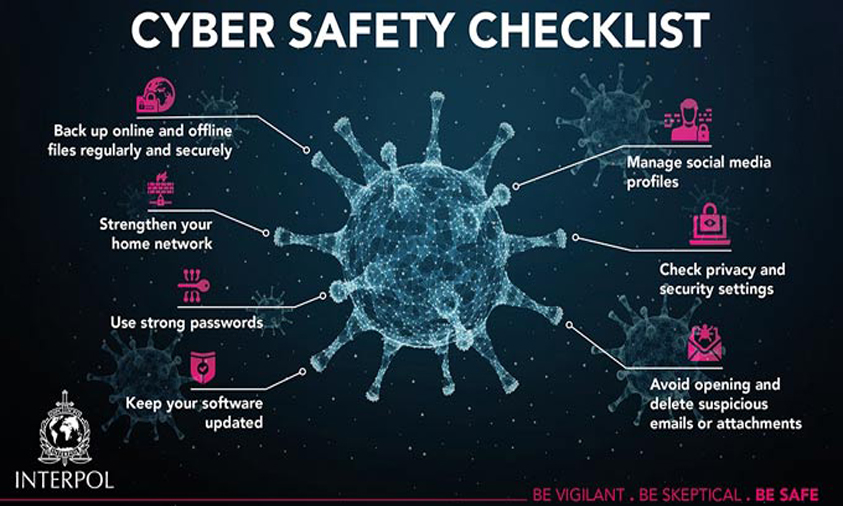Have you washed your cyberhands? If not, better do it fast, since there is more than just the coronavirus to watch out for during these days of the pandemic.
Across the globe, cyber security agencies and law enforcement agencies like the Interpol have identified real-time threats from crooks to cyber safety, not just of government and commercial establishments, but of individuals as well, and have launched campaigns to tackle these.
One such campaign is the Interpol’s #WashYourCyberHands campaign, which points out that ‘prolific and opportunistic criminals’ are taking advantage of the Covid-19 pandemic to launch a variety of cyberattacks.
“In particular, known malware which had been relatively dormant were re-detected since the outbreak began, taking new forms or using Covid-19 to boost their social engineering tactics. Although these cyberthreats are constantly evolving, some of the latest threats identified include those targeting the vulnerability of working from home,” says an Interpol communiqué.
In just three months after the pandemic began, by the end of March, security agencies discovered 2,022 malicious and 40,261 high-risk newly registered domains, all registered with keywords including Covid or corona.
While cybercriminals are creating fake websites related to Covid-19 to entice victims into opening malicious attachments or clicking phishing links, resulting in identity impersonation or illegal access to personal accounts, there are reports that nearly one million spam messages have been linked to Covid-19 since January 2020, it says.
Business Email Compromise (BEC) has become the scheme of choice, involving the spoofing of supplier and client email addresses, or use of nearly identical email addresses, to conduct attacks. Data-harvesting malware such as Remote Access Trojan, info stealers, spyware and banking Trojans that infiltrate systems too are on the rise.
In what could have particular relevance in Hyderabad, where IT firms have employees working from home, Interpol says crooks are exploiting vulnerabilities of systems, networks and applications used by businesses, governments and schools to support staff who are now working remotely.
“As the growing number of people relying on online tools overburdens the security measures put in place prior to the virus outbreak, offenders search for more chances of exposure to steal data, make a profit or cause disruption,” it says.
Interpol says there will even be ‘cybercrime-as-a-service’, and targeting of individuals’ personal information through spoofing and exploitation of digital content providers.
“Online connectivity and virtual communications tools used by employees working from home present more opportunities for cybercriminals to exploit,” it says, urging each person to ‘think twice before you click’.
